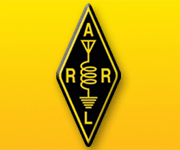Former ARRL Washington Coordinator, Archivist Perry Williams, W1UED, SK
The League’s former Washington Coordinator and veteran ARRL Headquarters staff member Perry Williams, W1UED, of Unionville, Connecticut, died on September 25. An ARRL Life Member, Williams, who would have turned 87 in October, spent 4 decades on the ARRL staff before retiring in 1994. That same year, he was named as Dayton Hamvention’s Amateur of the Year. In 2002 he returned to ARRL Headquarters in a part-time position as the League archivist.
“If Perry didn’t know something about ARRL history, it wasn’t worth knowing,” commented ARRL CEO David Sumner, K1ZZ. “I worked for Perry when I joined the full-time ARRL staff in 1972 and couldn’t have asked for a better mentor.”
A radio amateur since 1951, Williams came to ARRL Headquarters in April 1954 as an assistant secretary, which, as Sumner explained, meant that Williams “was expected to be able to answer just about any question about Amateur Radio regulations, both nationally and internationally, and to do whatever the Secretary and General Manager needed done.”
After rising to senior assistant secretary, in 1977 he was named manager of the Membership Services Department. Three years later, he became the ARRL’s Washington Area Coordinator, spending a couple of days a week in DC as the face and voice of Amateur Radio on Capitol Hill and at the FCC and working with ARRL General Counsel Chris Imlay, W3KD (then N3AKD), and Washington-area volunteers. Over the years, Williams contributed an extensive list of columns and articles to QST. After returning to Headquarters part-time in 2002, Williams continued as archivist until February 2011.
“It was my great privilege to work with Perry Williams, W1UED (‘usually eats dinner’ were his self-chosen phonetics for that call sign), on ARRL advocacy issues. Perry was extremely proud to wave ARRL’s banner in the halls of Congress at the FCC and in a good number of other Federal agencies where Amateur Radio had business.”
Imlay said one of Williams’s greatest accomplishments included talking Congress out of charging amateurs a license application fee; instead, he argued convincingly in favor of creating a vanity call sign program. “Perry thought — accurately — that amateurs would be willing to pay for services that they got from FCC, but that they would be very unhappy to pay application fees that didn't translate into something that benefited them,” Imlay said. “Congress bought Perry’s argument, and so we now have vanity call signs and no application fees.”
Imlay said Williams also crafted a plan for the Amateur Service not only to retain large segments of microwave spectrum that a bill in Congress would have surrendered for commercial interests, but to create a primary allocation around 2.4 GHz.
Prior to joining the ARRL staff, Williams served as a radio operator with the US Air Force Strategic Air Command for 6 years, before and during the Korean Conflict. In his younger years, he was active as a Boy Scout leader, once directed two church choirs, and enjoyed playing the accordion.
A memorial service will be announced. Survivors include his wife, Martha, and four children.
Back






